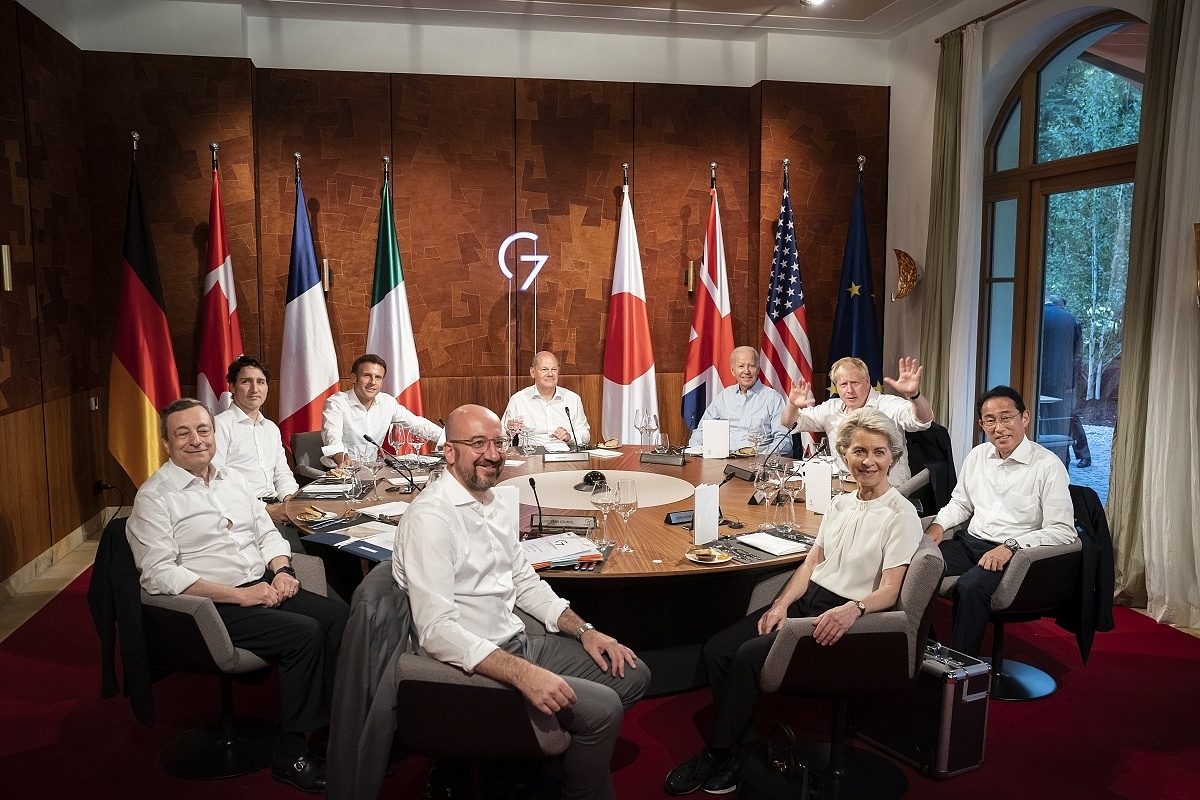Economy
Why The G7 Are Not United On The Issue Of Exports To Russia

G7 leaders at a working session in 2022 summit (G7 Germany).
Ahead of a summit of advanced economies, the US proposal for G7 countries to impose a total ban on exports to Russia has met with resistance from the EU and Japan.
The G7 leaders are drafting a statement for their upcoming meeting in Hiroshima, which includes a commitment to replace the sector-by-sector sanctions regime against Russia with a complete export ban, except for agricultural, medical, and other exempt products, as reported by the Financial Times.
US officials proposed a change in the existing system to prevent Russia from importing western technology, citing frustration with the loopholes present, according to the report.
The White House’s National Security Council spokesperson stated that the biggest set of sanctions and export control measures ever placed on a major economy were implemented in conjunction with G7 partners.
Such measures have greatly impacted Russia, rendering it incapable of funding and carrying out its wrongful war.
G7 leaders are struggling to find new ways to economically punish Vladimir Putin's regime after utilising multiple sanctions to limit Russia's economy from western imports.
This lack of options is highlighted by a disagreement over a measure aimed at increasing economic punishment after 14 months of war.
The US, UK, and EU are targeting third countries, such as Turkey and UAE, that are evading sanctions and are expanding trade with Russia. The main goal is to crack down on circumvention to maintain pressure on these countries in Central Asia.
Leaders from G7 countries will convene in Hiroshima on May 19, for a three-day summit where discussions will be centered on the impact of Russia's war in Ukraine, economic security, green investments, and the Indo-Pacific region.
EU is a G7 member, along with US, UK, France, Germany, Italy, Japan, and Canada. Its 27 members require unanimous agreement for imposing sanctions.
Since February 2022, the EU has agreed on 10 rounds of sanctions against Russia after prolonged negotiations. Member states have secured carve-outs and exemptions by threatening to veto restrictions.
Officials cautioned against implementing a full export ban with exemptions, as it could revive debates and weaken existing measures.
The draft statement for the summit proposes additional measures to prevent evasion and circumvention of the existing sanctions, and sanctions for individuals supporting Russia’s war through financial transactions facilitators, among other less controversial proposals.
The G7 nations plan to decrease their reliance on Russian energy imports and prevent Russia from exploiting its energy resources as a weapon. They will also unveil a mechanism to track Russian diamonds, reducing the Kremlin's financial gains from their exports.
Support Swarajya's 50 Ground Reports Project & Sponsor A Story
Every general election Swarajya does a 50 ground reports project.
Aimed only at serious readers and those who appreciate the nuances of political undercurrents, the project provides a sense of India's electoral landscape. As you know, these reports are produced after considerable investment of travel, time and effort on the ground.
This time too we've kicked off the project in style and have covered over 30 constituencies already. If you're someone who appreciates such work and have enjoyed our coverage please consider sponsoring a ground report for just Rs 2999 to Rs 19,999 - it goes a long way in helping us produce more quality reportage.
You can also back this project by becoming a subscriber for as little as Rs 999 - so do click on this links and choose a plan that suits you and back us.
Click below to contribute.
Latest